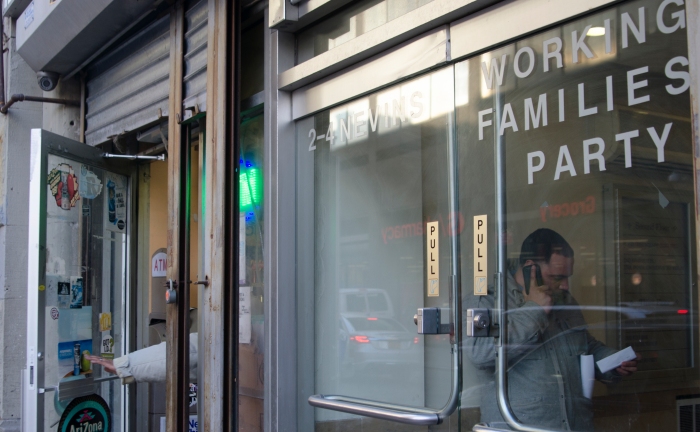The party that is what the Democratic Party tried to be
by Felipe De La Hoz
NEW YORK CITY – Dan Cantor and Joel Rogers knew from the beginning that their struggle would always be an uphill battle. The year was 1990, and Cantor, a Wesleyan-educated community organizer that had worked in Arkansas, St. Louis, and Detroit, had just founded the New York-based New Party with Rogers, a University of Wisconsin Professor.
Like the leaders of any third party in the United States, they knew that the odds were against them. The party’s defining mission was to seek the federal legalization of fusion voting, a practice legal in only eight states that allows candidates to run on two different party lines. Through fusion voting, a candidate can be elected by two entirely different constituencies belonging to two entirely different parties, such as the New Party and the Democratic party.
Cantor and Rogers wagered that their campaign and founding principle was new and forward-thinking enough that the party could thrive and successfully push for the country-wide legalization of fusion voting.
In 1997, the Supreme Court ruled 6-3 that states could constitutionally ban fusion voting, and the New Party went under, seven years after its inception.
The New Party, however, was just the first incarnation of Cantor’s vision, and a year later he founded the Working Families Party with Bob Master of the Communications Workers of America and Jon Kest of Association of Community Organizations for Reform Now (ACORN), with the objective of utilizing New York’s own fusion voting laws to create a home for progressives in the wake of a center-drifting Democratic Party.
Though it has been likened to being a Democratic answer to the radicalized Tea Party and similar efforts to pull the Republican Party rightwards, New York Communications Director Khan Shoieb of the Working Families Party stresses that, while oftentimes “Democrats embody our ideals,” the party’s position is “not wedded to any title but to its values” of progressive reform. “What we want to do is to change the debate from Democratic and Republican to Progressive and Democratic […] it’s about changing the discourse.”
The party has certainly broken from the habit of running only fusion candidates with the Democratic Party. In 2003, the party ran candidate Leticia James for a Brooklyn City Council seat, with Leticia winning the seat on a strictly third-party basis.
Shoieb believes that the expansion of the party’s ideals and presence nationally is “definitely realizable” within the next decade, with New York City Mayor Bill de Blasio, the WFP’s candidate along with the Democrat’s, “already advancing the will of the people, calling for New York’s right to self-determination, to decide its own wages” and “rallying legislators in Albany” for his progressive cause.
“Seven years ago, no one thought we could do it. Now we’re here […] the issues of income inequality are at the fore” says Shoieb, speaking of a success that is evidenced by the WFP’s expansion into other states, such as Connecticut, Oregon, Delaware, and South Carolina.
With this growth, the party will be expanding in the coming year to a much larger political force, with much greater reach than it has been able to achieve in the last fifteen years, and more capable of winning local elections throughout the country.
When asked whether the party had to remain an unattached third party or could possibly be absorbed into the Democratic Party, Shoieb made it clear that the WFP stands for certain objectives that are achievable in tandem with the Democrats, but not necessarily through them. He believes that Working Families can thrive in any state as a place for union activists, community organisers, and regular citizens that are drawn to an agenda of progressive reform in a manner that the Democratic Party has not been able to pursue.
Shoieb stresses that the states in which the WFP can thrive are not just the blue states.
“Wherever there’s a mass of people that believe that the state is for everyone” he explains, “wherever the people want to address issues of climate change, prison conditions, racial justice, the Working Families Party has a home.”
